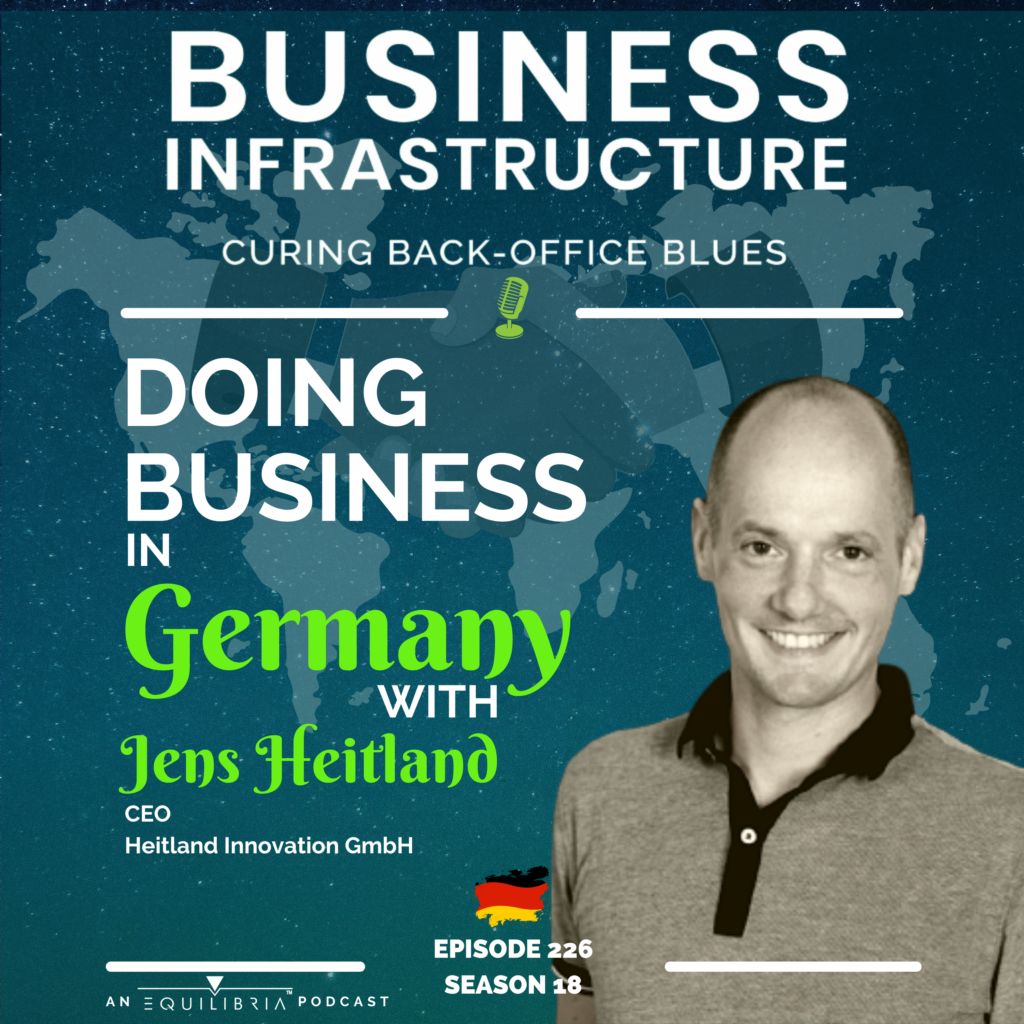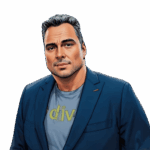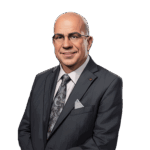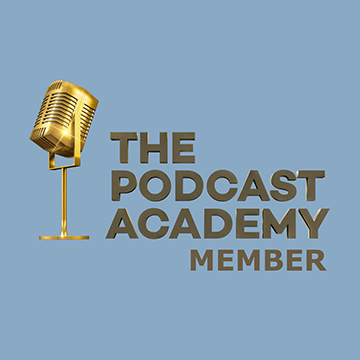Transcript
We’re still on a high from our meeting in Canada. In fact, it’s a high so strong that not even a 14-hour flight from Toronto to Rotterdam in the Netherlands can temper it. Besides, we have a couple of connecting flights along the way that will keep us awake too. We’re headed to the The Hague, the administrative and royal capital of the Netherlands.
I’m Alicia Butler Pierre and this is Season 18 of the Business Infrastructure podcast – the show where we share operational tips, tactics, and tools for curing back-office blues. As we nestle into our seats on Equilibria Airlines, we find ourselves constantly looking at the screens on the headrests in front of us for a time check. We want to make sure we arrive on time. We need to be punctual. After all, we’re about to meet with Jens Heitland and
although we’re meeting in the Netherlands, Jens is German and…well, you’ll soon find out why being punctual is just one of many expectations to demonstrate professionalism and business acumen in Germany.

This episode is underwritten by Equilibria, Inc. the company behind this podcast where we design scale-ready business infrastructure for fast-growing small businesses.
We’ve just landed at the Rotterdam The Hague airport in the Netherlands. Thankfully the weather has held up. As we make our way outside the airport, our Uber driver pulls up shortly after in a black Volkswagen. Fitting considering Volkswagen is a German auto manufacturer. And if there’s anything Germans are known for its their accuracy, precision, and engineering! We’re going to meet Jens Heitland, the CEO of Heitland Innovation, in a co-working space. Not only is he German, but he also happens to be an engineer too. And what he has to say about entrepreneurship in Germany might surprise you!
This is Episode 226 – Doing Business in Germany with Jens Heitland
My name is Jens Heitland and I am German, grown up in Germany, and I’m living right now in the Netherlands. So, I started working on construction site right after school. I didn’t go to university. I started working in the age of 16. And that was basically the entrance into the engineering. So, in Germany, there’s a different educational system than in other countries. So, you start with your profession either after university or you can start straight away after school. So, I was learning the engineering part from the bottom up, from doing it myself. And then later on going to university. I was working in the engineering field all my life because I still work today with clients that come from that world. But in the age of 24, I figured out that’s maybe not where I want to retire.
So, Jens decided to switch industry gears from engineering to retail and facilities management, a career that included running the technology and building services of real estate companies.
After a couple of years in the service industry doing that professionally for companies like Deutsche Bank, which is one of the biggest German banks. Headhunted from IKEA, the big furniture company. And was then starting in IKEA on a store level as a team leader, running the building, taking care of the technology. And then growing in IKEA through being responsible for 11 stores, working in Germany on the country level, working then in a global project, moving as head of sustainability to Russia, living in Moscow for a couple of years. And then, through a couple of loops ending up as global head of innovation for IKEA centers, globally, taking care of all the innovation activities and building a strategic approach.
Jens’ work with IKEA not only gave him a taste for working internationally, but 11 years later it also gave way to him starting his first business, Heitland Innovation, in 2019.
I stepped out to build my own business and try to help companies to innovate. And that’s basically where I still am. I have founded six companies until now, but all of them are kind of helping companies to innovate.
Six companies. And I know those companies are spread across different countries, right?
Yes, they are.
So, there’s Germany mentioned the Netherlands,
Spain as well.
So, when you start these companies, is it a matter of just establishing an address and, and getting a business license or do you actually have a physical office set up in each of these countries?
No, I don’t, from the start on, I wanted to be as flexible as possible and not having extraordinary costs, like fixed costs. I always looked into how we can set something up that’s easy to operate and it’s not requiring us to have a big office because all of the companies are built up in a nontraditional way, which is really mobile first. We are working with the best people in the world and everyone who wants to work with us can work from a place where they want to. So, it’s not required to be in any office.
Being that each of Jens’ companies has a mobile-first business model, I hoped he could shed more light on what it’s like to do business in Germany.
Yeah, it’s kind of like it maybe fits to, to who I am, which is engineering. It’s very driven from the engineering background. And that’s also where it is a little bit more conservative when specifically in the field where I work, when it comes to innovation, there are a lot of licensing required to do certain jobs in Germany. So, there’s, almost over licensed, the whole country. So that’s fairly difficult environment when you come in, for example, if you want to do business from the U.S. it’s fairly hard to start a business in Germany without having the right licenses, without having the right visa. And so, it takes quite a while. And even if you want to come, let’s say from Spain to Germany and want to build an electrician company or build an engineering company, then you need to do a lot of paperwork to get this organized. So, if we talk about Germany as a totality from a company perspective, it’s very hierarchical driven, still even in 2022, very focused on cost saving, very focused on making things perfect from an engineering perspective.
Now that’s interesting and it made me wonder about the origins of that need to make things perfect from an engineering perspective. Being a history buff, I’m always fascinated at how factors like war, climate, and location shapes countries and their cultures. So, I asked Jens, what are the origins of Germany’s engineering focus?
I’ve never really looked into that. But I guess it’s really from the industrialization. If you take the second world war, there was no Germany anymore when it comes to industry. And everything was established after that with the support of course from the U.S. So, I think that where engineering and the industrialization of the German, companies have been established. And then it’s ingrained into the culture. So, for me, for example, because I’m working a hundred percent in international environment, you see straight away the difference of a German doing an Excel table or a Spanish person doing an Excel table.
Let me guess, the German person doing the Excel table, will have a lot more information. I’m assuming.
Yeah. A lot more details and less colors.
So now that we know the German culture and expectation for operating a business, how does a foreigner go about starting a business there?
It’s very difficult. It’s very different I have to say when I opened my first company, I was still living in Sweden where it’s fairly easy. You go to the authorities and say you want to open a company and two days later you have a company. In Germany, that takes you three months where you need to file a lot of papers, go through the notary, need to put money into the bank. It’s not easy to get started.
How’s that for brutal honesty? But if you’re interested in tapping into the German market, don’t be dismayed. There are some industries where small businesses are breaking that traditional mold.
Yeah, it’s changing over time right now, of course there’s a lot going into the digital ecosystem, like everyone working with something digital, and that can be from let’s say a social media marketing company to a startup that’s building apps and so on. That’s growing, but it’s growing only in hubs. So like Berlin is a hub, Dusseldorf, Cologne is a hub. And then we have Munich, that are kind of in Frankfurt, maybe a little bit these are hubs, but the rest is still focused on more traditional businesses.
Anytime you hear of digitization and hubs, you can safely assume that it’s associated with younger populations. Jens confirmed and explained why.
It’s because they have the main bigger universities and they build startup ecosystems where companies are investing like Amazon and Google for example, are then in these places, they are also supporting the startups to get going.
Considering the difficulty Jens described in starting a business in his homeland, I wondered if this is what led to his decision to expand his international network and start his other businesses outside of Germany.
Not too, too much. So, for me, it was really about what is the system I understand of how companies are protected. I came from a global position, have worked internationally for a couple of years, and I wanted to start internationally. I was not focusing too much about how can I service the German market. It was more about how can I build a corporate company that helps me to secure myself in the best possible way and as well, the wealth of my family. Cause they’re different company types in Germany, you can choose. And so, I’ve decided to go for a limited liability company and then build that in the German market because I speak the language and the bookkeeping rules and so on is something I have learned before. That was the main reason. But then using that as well as a credibility driver working with international companies, because if you work with bigger companies, they understand how the German system works and if you have a specific company that you are more credible than if you are let’s say a one man show that’s, that’s just doing freelancing.
Understanding how the system works goes a long way in successfully starting a new business in any country. But then there’s other factors to consider if, for example, you want to partner with an existing German business.
It’s very important to understand the German cultural aspects of that. So, one thing which is not too much seen from the international world, is that Germans and Germany in, in general speaks German. And it, it might sound weird, but there not too many people that speak properly English on a business level. Of course, in the bigger cities, and now the younger people do. But if you take conservative businesses, which are fairly successful, there are not too many people on a business level that speak proper English. And I, I have seen this over and over again in between where basically I was asked to support someone getting into the German market, and I needed to do it in German because there was no way in that they could do that in English. I think that’s one hurdle, which you need to find out how to navigate around that.
The second part is because they are focused very much on the German market, even if they’re expanding, it takes quite a while. It’s really about how can you build the trust that you are with the right quality from a German perspective and the right mindset, which is everything is in order connected to what they’re doing. I think these are the two main things where I see from a culture aspect, depending on where you are in the world, you will struggle either being a client, being a supplier or a partner. It’s really about how do you connect to the individual person that is kind of attached to that company rather than how can I directly reach out to the CEO because you never know if they speak English properly. Sounds weird, but that’s at least what I’ve experienced.
Now that’s important to know – to increase your chances of business success, you must become fluent in German. When we visited Nigeria back in Ep. 222, Mujahid Usman mentioned English being the official business language there and so did Martina Goss in Ep. 223 as she described Ireland’s competitive advantage as one of the few English-speaking countries in the European Union. Remember, Jens has businesses in different European countries, so I wanted to know if language is also a barrier for conducting business in those countries.
Spain, a hundred percent. Spain is very, very difficult. I lived in Spain for a while and it’s very, very difficult to do business in English. The Netherlands, the opposite. It’s super easy. That’s also one of the reasons why we are now living in the Netherlands, because it’s basically everyone in the whole country speaks and understands English. Doesn’t matter if it’s, a cleaning lady in the shopping mall,
or if it is the taxi driver. Everyone speaks English. Everyone understands English. And the funny thing I’ve found out at least one of the reasons is that they’re not dubbing or transcribing their TV. So basically, all the movies you watch, all the original Hollywood movies as an example, Disney movies, they’re in English, they’re not in Dutch. In Germany, everything is in German.
Okay. Let’s talk about Heitland Innovation. This is one of your companies that you actually started in Germany. Tell us more about how you’ve actually built your team.
Yeah, so that’s my first company I’ve built. That’s basically the company, which for me is still the most important company because that’s the company where I say this is the, the heart of everything I’m doing where we help companies to innovate and doing that in a specific way which I of course prototyped and validated over time. We are at the stage where we say, we are not a normal consultancy company. We come into your organization, and we work together for either six, 12 or longer months. And one of us will work basically inside of your company the whole time and help you to transform when it comes to innovation building, really innovation systems.
What started as a one-man show helping other small businesses has since evolved into a business with, as Jens previously described top experts from around the world.
And from there on it was continuous developing, building a network of people very, very senior, which I can drop into organizations where I don’t need to be even part of the engagement.
Having a company that can function without his daily presence didn’t happen by osmosis. Business infrastructure played a key role in that. Coming up after the break, Jens will tell us more about the business infrastructure he deployed in building Heitland Innovation, how it’s given way to his latest venture, and of course, more advice for doing business in Germany.
Do you need to grow your team but aren’t sure where to start let alone who to hire first? And what about processes? Do you have any of them documented so that people know what work to do and how to do it?
If you own a fast-growing small business and want a company that can consistently operate without your daily presence, then the Smooth Operator course is for you. It’s an online introductory course on business infrastructure that can provide you with proven tools, tactics, and techniques to calm the chaos and restore order. Go to SmoothOperator.courses to learn more. That’s SmoothOperator.courses.
We’re back with Jens Heitland, serial entrepreneur, public speaker, and leadership and innovation savant. Before the break, he shared details about building his first company, Heitland Innovation, in his native Germany, a country he described as “not easy” when starting a business due to language, paperwork, and regulations. As he talked, the role that business infrastructure played in him scaling his business was evident. Business infrastructure is a system for linking people, processes, and tools so that scale happens profitably, repeatably, and sustainably. And, as you’ll hear from Jens, how you build it is less important than having it in the first place. Here’s Jens.
Our angle of helping a company to transform through innovation is always starting with the people. I’m a big fan of not focusing on processes because that’s, for me, the last step. I’m starting with the leadership, starting with the CEO, starting with the management team and helping them to understand how you need to work first with yourself, second with your employees, third with your communities, and then how do you do that as an organization so that you basically innovate on a daily base, but as well. And that’s then the system, not just doing the incremental or adjacent steps where you say, “Okay, let’s venture into a couple of turns that are interesting for us as well. We go in and we help the company to do that by being in the company. So, it’s not just a consultant, which is advising, we work with the company for at least six months, because I believe if you do transformation where you focus on people, six months is the lowest limit you can do to, to really see results.
And who exactly is the target market or client base for Heitland Innovation?
The main target market is a little bit larger companies, because very small companies don’t have the money to invest too much into that. If you drop an executive from us into the company, which takes over responsibilities as well, that costs a bit. So, the size is always plus 500, then it makes sense. They have the bigger ecosystem that they need to work with a whole leadership team. It’s big
focus on the real estate and retail industry because that’s where I came from. But we have worked with, a worldwide engineering company. We have worked with an architecture company. It’s kind of not really one market only, but we focus of course, due to my history a lot into retail.
Now that we know the target market for Heitland Innovation, what about the people element of its business infrastructure? Jens said he sources them through his impressive network of experts at the top of their game. But how does this work without overcharging or undercharging a client? Do these consultants work remotely?
It really depends. I’m a big fan of dropping someone into the physical environment, but it depends on the client. Some clients are a hundred percent working remote, so there’s no need. But that’s also enabling us to work in a global environment, not just focused on the German market, because we can work with clients all over the world due to that network.
So that covers the people element of business infrastructure. What about the tools and technologies element that keeps the Heitland Innovation engine running?
I mean, obviously all the social media where I focus a lot on, because I truly believe that a personal brand and a business brand is the most valuable you can build up, and then you don’t need to focus too much on trying to sell because people will come to you. So that’s, that’s a big one. And then very, very simple things like a to-do list, which I have an app where I basically have all the important contacts in and set a date when I want to connect with them. Like yourself, you are in the list as well, and every half a year or something, you pop up and then I’m saying, “Oh, did I connect, or did I not connect? Did we talk or did I not talk?” So, and then I’m shooting an email or I’m shooting a WhatsApp, depending on which ecosystem you are in in my world or, or just saying hello on LinkedIn. That’s one of the most valuable things I’ve built up because every one of this is in my phone book. So, I have people from students to Hollywood movie producers to the CEO of IKEA, all in my phone book.
Considering the technology Jens uses to manage his time and keep in touch with his network, it begs the question about pricing. With so many businesses and clients spread across Europe, how does he price his services?
We adapt that depending on the local circumstances as an example, depending even where in Spain, if you are in, in the main hubs, which is Barcelona and Madrid, the prices are highest. You can charge more. If you’re in one of the smaller cities, you are definitely not compatible. But having said that, I’m now experiencing and testing something, I, I want to do a very, very simple pricing strategy. That’s one of my tests for 2023. We have very simple prices, and that’s starting with thousand euro. The next step is 10,000 euro. Then we have a hundred thousand euro, and then we have 1 million.
Basically, when you want to work with us and you want to get five of us for a whole year, it will cost you 5 million euro or dollars. And we help you with five people full time and get your company organized.
That takes care of invoicing, but what about accepting payments?
There are different strategies. I still have one-on-one clients where I help entrepreneurs, or startups, which is then more like credit card payments.
The bigger ones are always wire transfers. Always. And that’s mainly due to the German complexity. And the bookkeeping – you need to have a specific way of collecting the money and then it’s wire transfer because the bookkeeping and the lawyers require that.
Our time with Jens will soon be over, but we can’t leave this meeting without asking him about his latest venture, which he describes as a “real startup.” It’s called WE ARE SUCCEED and it’s centered around leadership education.
The challenges in organizations to innovate are limited by leaders and the leadership capabilities. So, our assumption is that if we provide leadership education to as many as possible people, we will change companies and companies will change the world. And then what we said is, what if we can reach as many as possible people by providing leadership education for free and really taking it to the level where we built a platform where we built a digital, let’s say ecosystem again, to make it happen.
And by reaching as many people as possible, Jens’ goal is big and audacious – he intends to reach 1 billion people by 2030. The target market for WE ARE SUCCEED is very different from the one he described for Heitland Innovation. The latter focuses on experienced leaders within large companies, but WE ARE SUCCEED seeks to work with neophytes just starting their careers by answering the following question…
How do we get people early on in their careers educated when it comes to leadership? Because my assumption is that the 55-year-old executive from a very big oil company, you are not changing the leadership style that easy anymore, but the youngster that just started his or her career, they may be interested into leadership education and don’t have the money and as well not the possibility inside of the corporates to do that. So, what if they get it for free, then they can learn it, and then they can basically directly improve it inside of the company and through that as well impact their bosses.
Interestingly, Jens chose to start WE ARE SUCCEED in the Netherlands where he currently lives. He said it was more beneficial to set it up there instead of Germany. I then asked if had any resources he could share to enable us to make a decision about whether to seek expanding our company’s operations to Germany.
From a resource’s perspective, it’s very hard. I have a couple of books, which I have read early on, but they’re unfortunately only in German. So, I can’t really recommend them. That’s, that’s the hard part.
When I asked Jens if there was maybe an English translation of these books, he told me unfortunately no, there isn’t.
I’ve tried to find it because I wanted to recommend them already to a couple of people, but it’s not existing. It’s quite funny. But they’re very old books. I think key part from a resource perspective is understanding the German culture and specifically maybe for America, Germany is not Bavaria, where you are Oktoberfest all the time. Because I know a lot of Americans and I have a lot of an American friends, and that’s what everyone thinks, but it’s just a city.
In other words, Bavaria is just one of many states in Germany.
So, it’s really understanding and trying to go deeper into the German culture, looking a little bit into the history of how Germans think. I think that’s a big opportunity. The other one is using connectors like myself, people who are either still in Germany or living in Germany and are working with Germans, which will help you to understand that way quicker and get into the German culture or can introduce you to a couple of companies. And due to my network, I know a couple of Germans who could easily do that, so everyone is happy to connect to me and happy to introduce you depending on which industry it is.
And let me be clear – when Jens says he’s happy to make an introduction for you, he really means it! He and I have known each other at this point for nearly two years. I’m a part of his ecosystem and he has an uncanny ability to connect people. That’s why I couldn’t officially end our meeting with Jens without saying one more thing.
I just wanted to officially go on record and say, that I, I really admire everything that you are doing for the small business community around the world. It is much needed and much appreciated.
Thank you very much. It’s a pleasure.
You’re welcome.
And that’s it, folks! Let’s give a special thank you to Jens Heitland for his candidness about doing business in Germany. Take him up on his offer to connect. The best way to find out how to do that as well as get links to his podcasts as well as resources he shared is by going to BusinessInfrastructure.TV. We’ll also include some other books like Kiss, Bow, or Shake Hands that provide specific information on business in Germany.
Before we walk out of the building, we arrange for an Uber driver to pick us up and take us back to the airport. If you’ve been listening to the past few episodes, then you should know that I won’t reveal where we’re going next. You’ll just have to stay tuned for the next episode to find out!

Thank you for tuning in! If you enjoyed this episode, then please subscribe and leave a five-star rating and review.
Don’t let language barriers, paperwork, and regulations stop you from pursuing a dream you may have of doing business in Germany. Follow Jens to get plugged into his network to learn how to navigate startup or partnership challenges and emerge as a better leader who thinks innovatively in the process. Remember, we’re all here for you so stay focused and be encouraged. This entrepreneurial journey is a marathon and not a sprint.
This podcast was written, produced, and narrated by me, Alicia Butler Pierre. Audio editing by Olanrewaju Adeyemo. Original score and sound design by Sabor! Music Enterprises.
This is the Business Infrastructure – Curing Back-Office Blues podcast.












